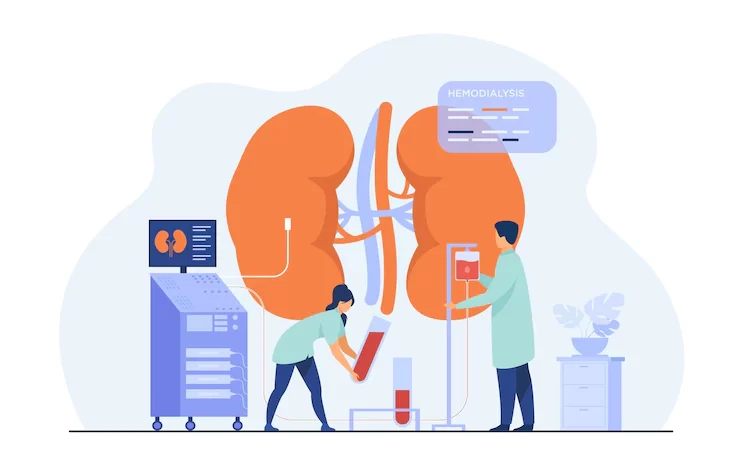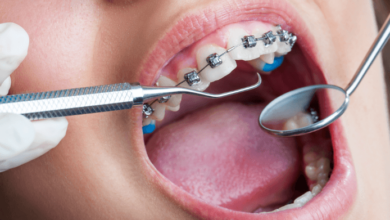Urinary Tract Infection: Diagnosis and Treatment

UTI is a term for many clinical conditions affecting the urinary tract. The most well-known side effect of urinary tract infection is a problematic, consuming sensation while passing urine. UTIs are caused by microorganisms entering the urethra and replicating in the bladder. They usually are treated effectively with anti-infection agents prescribed by a urology doctor. However, the dosage and duration of antibiotics depend on the severity of the infection. In addition, urinary tract disease is very typical, particularly among women and youngsters.
Causes
Urine is sterile and contains no microbes like microorganisms, infections, or growths. UTIs happen when microbes enter the urinary system through the urethra. UTIs generally originate from microscopic organisms that typically live in the gut.
The urinary system comprises the kidneys, bladder, ureters, and urethra. The urethra is the opening to the urinary system from where urine comes out. However, a UTI can affect different regions of the urinary tract:
-
- When it impacts the urethra, it is called urethritis.
-
- When it infects the bladder, it is called cystitis (the most widely recognized UTI)
-
- When it affects the kidneys, it is called pyelonephritis.
Risk Factors
Females are more susceptible to a UTI because microscopic organisms can more effectively move into their urinary passage because the urethra and anus are near one another. Different variables that can increase the chance of UTIs include:
-
- Diabetes
-
- Pregnancy
-
- Underlying deformities of the urinary lot
-
- Being sexually active
-
- Any component that disrupts the urine stream, e.g., kidney stones, an enlarged prostate, etc.
-
- Having a catheter embedded into the bladder
-
- Improper personal hygiene
-
- Being post-menopausal
-
- Using oral contraceptives
-
- Having a weak immune system
UTIs are additionally typical during youth. The most well-known reasons for UTIs in kids are obstruction, not exhausting their bladder completely, and deferring urination.
Symptoms
A UTI’s most widely recognized side effect is an excruciating, consuming sensation while passing urine. If this is regular, visit a urology doctor in Mumbai. Other symptoms include:
-
- Pain in the mid-region or pelvic region
-
- A continuous or steady desire to pass urine
-
- Cloudy or foul-smelling urine
At the point when it affects the kidneys, different side effects experienced can include:
-
- Back pain
-
- Fever and chills
-
- Sickness and nausea
-
- Blood-stained urine
Some individuals with a UTI might have no side effects, while certain individuals who have these side effects might not have a UTI. Side effects in youngsters might be less clear. These may be:
-
- Unsettled posture
-
- Fever
-
- Stomach ache
-
- Diarrhea
Children with a UTI might have no side effects other than a fever. However, older kids might have pain during urination or potentially need to urinate frequently.
Treatments
If you catch a UTI, it is essential to consult a specialist when possible so they can make an exact diagnosis and provide proper treatment. It is vital to forestall disease of the kidneys and other likely complications (like sepsis) from arising. Until you can consult a specialist, primary treatment measures include:
-
- Drinking adequate water
-
- Staying away from liquids that might disturb the bladder (e.g., bubbly beverages, liquor, espresso, and tea)
-
- Treating pain & fever with drugs, for example, paracetamol.
Identifying a UTI can be done by observing side effects and testing the urine sample for the presence of microorganisms and platelets. UTIs are generally treated effectively with antioxidants. The course of anti-infection agents is taken orally, as prescribed by the doctor.
It is compulsory to go through the entire course of antibiotics as recommended to guarantee that the disease doesn’t return as UTIs have a high recurrence. In addition, treatment is necessary to keep the infection from becoming resistant to antibiotics. There may be underlying causes for recurrence like urinary (vesicoureteral) reflux in kids. However, it should be identified and adequately treated when possible. Symptomatic tests include ultrasound or tomography (CT) checks and concentrated x-beams of the urinary tract. If intermittent UTIs have a fundamental reason, doctors recommend a cystoscopy to see inside the urethra and bladder, and low-dose antibiotics might be given every day as per the doctor’s prescription.
Conclusion
UTIs are ubiquitous, and this disease can infect people of all ages. It can develop in different regions of the urinary tract, and several factors influence this disease. If you face any symptoms, visit a urology doctor in Mumbai as soon as possible. If you catch a UTI, there is no need to panic as antibiotics can successfully treat this infection.




